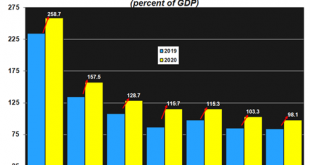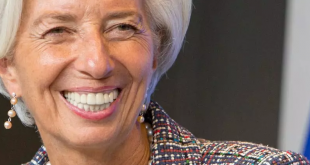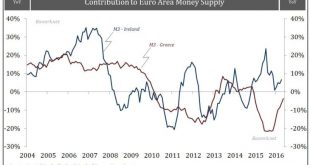Governments are taking a page out of the play book that monetary policy began a decade ago – which will lead to even higher debt levels. During the throes of the financial crisis almost a decade ago Mario Draghi, then President of the European Central Bank (ECB) pushed the ECB’s mandate to the limits with his speech in July 2012: “within our mandate, the ECB is ready to do whatever it takes to preserve the euro. And believe me, it will be enough” This was during a...
Read More »Whatever it Takes, Again?
Promising to do “whatever it takes” in order to avert a bad equilibrium is very different from printing money when the problem is a lack of resources, or their distribution. See Gilles Saint-Paul’s “Whatever it Takes.”
Read More »The owl has landed: Lagarde’s new vision for the ECB
Christine Lagarde. Photo Credit: European Parliament On December 12, Christine Lagarde introduced her goals and vision in her first rate-setting meeting as the new President of the ECB. On the actual policy front, there were no surprises. She remained committed to the path set by her predecessor, Mario Draghi, and kept the current monetary stimulus unchanged. The central bank kept its deposit rate at the present record-low -0.5%, and pledged to continue its €20...
Read More »The owl has landed: Lagarde’s new vision for the ECB
On December 12, Christine Lagarde introduced her goals and vision in her first rate-setting meeting as the new President of the ECB. On the actual policy front, there were no surprises. She remained committed to the path set by her predecessor, Mario Draghi, and kept the current monetary stimulus unchanged. The central bank kept its deposit rate at the present record-low -0.5%, and pledged to continue its €20 billion bond purchases every month, to the chagrin of its many critics who...
Read More »Money confuses and blurs economic relations
Money, generally accepted medium of exchange, acts as a veil that confuse and blurs economic relations. This is especially true when it comes to intertemporal considerations. Whilst probably the most important institution in a free market, money can be highly destructive when politicized. Why? Because politics is about power and distribution of real wealth. And since money affect almost every single transaction,...
Read More » Swiss Economicblogs.org
Swiss Economicblogs.org



